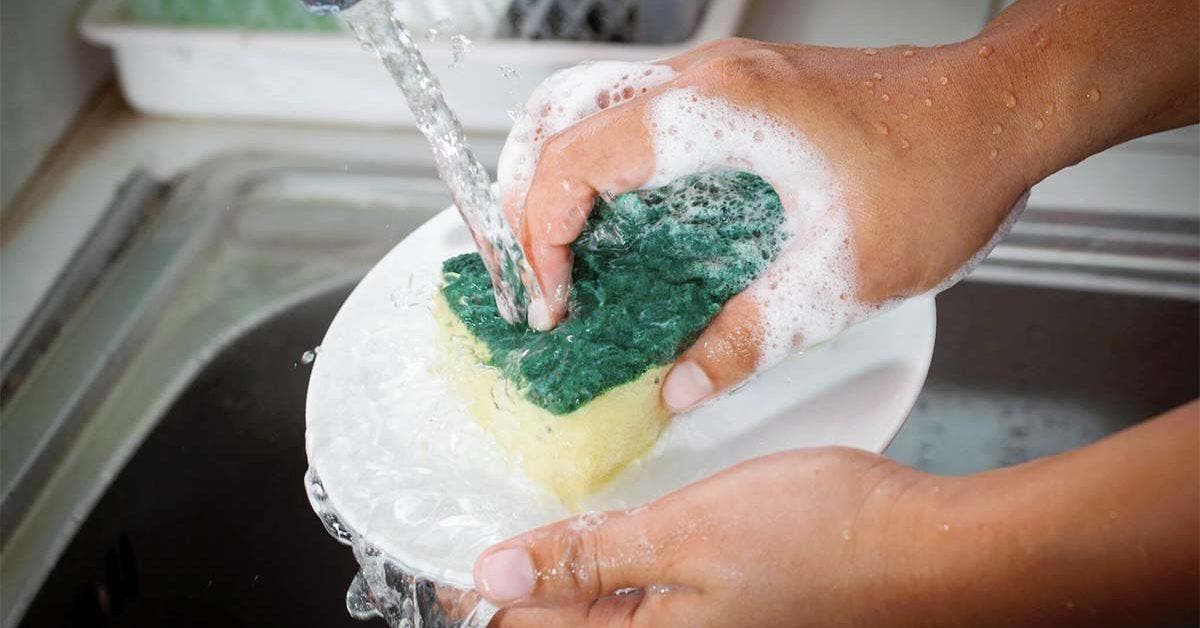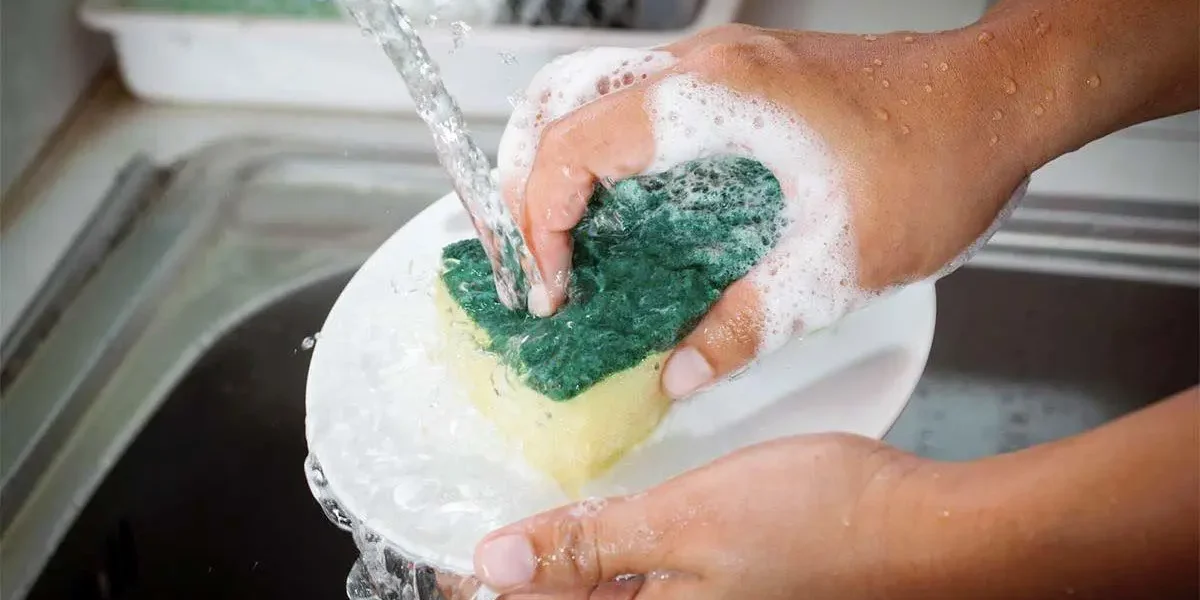
Dish sponges are essential parts of our kitchen, used daily to clean utensils, plates, glasses and countertops. However, due to their constant contact with food and surfaces, sponges are formidable breeding grounds for germs. In this article, we’ll reveal how often you should replace your sponge and why it’s crucial to maintain proper hygiene.
How often should you replace your sponge?
When it becomes difficult to remember the last time you changed your dish sponge, it’s time to act! In reality, they need to be replaced every week. Yes, this may seem excessive, but it is necessary to maintain a clean kitchen environment and prevent bacteria growth.
Why do germs accumulate in dish sponges?
Dish sponges provide an ideal environment for germs to thrive. Their porous structure and the presence of food residue provide a surface conducive to bacterial growth.
A study carried out by the University of Furtwangen, the Justus Liebig University of Giessen and the Helmholtz Center in Munich revealed the presence of as many as 362 different types of bacteria in kitchen sponges . Some bacterial density levels were comparable to those found in fecal samples, highlighting the need for regular sponge replacement.
Risks linked to bacteria present in dishwashing sponges
About 50 percent of bacterial species found in sponges belong to risk group 2, meaning they are potentially pathogenic.
People with weakened immune systems, such as young children, the elderly and people with chronic illnesses, are particularly vulnerable.
Although diarrhea pathogens and fecal bacteria are rarely detected, maintaining strict hygiene is essential to prevent any risk.
Can you clean dish sponges?
Wanting to clean dish sponges may seem tempting, but it’s not an effective solution. Neither the microwave nor the washing machine is recommended for cleaning sponges, as their structure is not heat resistant . Additionally, even if bacteria counts temporarily decrease after cleaning, pathogens can quickly proliferate again as they develop greater tolerance to stress.
